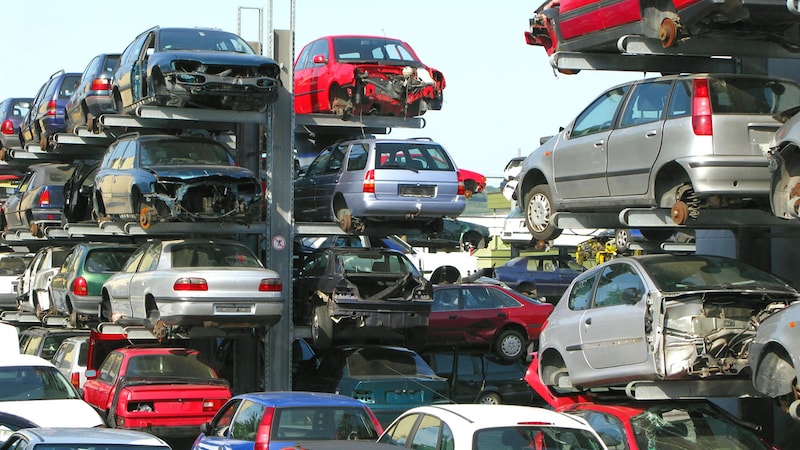Buying a used car from a private seller

Quick insights
- Buying a used car from a private seller involves direct negotiation and payment between individuals, rather than through a dealership.
- Thorough research, vehicle history checks and professional inspections are some steps to making an informed purchase.
- While private sales might result in fewer fees and more flexibility with negotiating, they may require more diligence from the buyer.
Ready to buy your next set of wheels? If you’re considering buying a used car, there are plenty of ways to do so. Outside of going to a traditional dealership, you can find used car options by exploring private sellers.
You can find private sales by either searching online or looking in person. You might find your next ride on social media or parked in a nearby lot advertising that it’s for sale. If you’re ready to buy a used car from a private seller, there are pros and cons to weigh before handing over your cash and hitting the open road.
What does it mean to buy a used car from a private seller?
Buying a used car from a private seller means buying a car from an individual, rather than a business that specializes in selling motor vehicles. If you were buying from a showroom at a dealership, you’d likely have many cars to choose from. If you’re buying from a private seller, it’s likely the car you’re looking at is the only one they have to offer.
How to buy a used car from a private seller
- Do your research. The first step in buying a used car from a private seller is research. Like we mentioned earlier, you won’t be visiting a dealership where you can browse. Instead, you’ll be looking at individual listings on websites, or from other sources like message boards at your local shopping center, library, or town hall. And be sure to watch for cars with “For Sale” signs on them while out and about in your car, shopping and doing other errands.
- Narrow down your options. Once you’ve found a couple of options, it’s time to figure out which car best fits your budget and lifestyle. You can begin by contacting the seller and setting up a time for a test drive. You can also use this time to ask them questions about the car: Why are they selling it? Is there any damage you should know about? Do they have a copy of their title that proves the car is theirs to sell? Once you’ve spoken to the seller, it’s time to dig a bit deeper.
- Order a vehicle history report. You can order a vehicle history report on a vehicle that’s for sale, even when it’s being sold by a private seller, by using the Vehicle Identification Number (VIN), typically found on the car’s registration card or insurance information. A vehicle history report can cost anywhere from $10 to $40 and will give you background information on the vehicle including who owns it, any accidents it’s been in or general information you’d want to know about the car.
- Get the car inspected. Before you close the deal, you’ll want to get the car inspected. An inspection can uncover details you didn’t catch and save you from costly repairs. You can get the car inspected with an experienced mechanic that might cost $200 or more, but this extra expense may prevent you from buying a damaged or malfunctioning car.
- Shop for an auto loan. If you can’t pay cash for the car, you can shop around for a lender and auto loan. Once you’ve found what’s best for you, you can submit your application.
- Close the deal. Now that you’ve inspected your vehicle and researched financing, it’s time for the most exciting part — negotiating. You and the private seller will likely end up meeting in the middle. The seller should officially sign the title over to you in exchange for payment, and then you can get your car registered in your name.
The pros of buying a used car from a private seller
- More room for negotiation. A private seller cares both about getting the car off their hands and how much money they’ll get for it. If you’re working with a dealership, they may be less likely to budge.
- More autonomy. There are no middlemen or complicated corporate policies — just you, the car and the seller. This makes for a more casual experience, and possibly more room for negotiation.
- Fewer fees. If you’re buying from a dealership, there may be fees that pop up along the way, so it may be more expensive than you planned. With a private seller, you don’t have to worry about additional dealer fees.
The cons of buying a used car from a private seller
- May take more effort. Buying a used car from a private seller means you don’t have a professional helping you along the way. It’s up to you and the seller, potentially total strangers, to trust each other without access to further help and service. A dealer, on the other hand, can help in getting the title transferred, educating you about car care or finding out if the car is still under warranty.
- Potentially a lower quality car. A private seller doesn’t have to worry about their reputation or receiving a bad review online. This means the quality of the car might not be what was promised.
- More opportunity for fraud. Similar to the above, what the private seller tells you about the vehicle is totally at their discretion. Once you’ve handed the seller your payment, you must trust they’ve been true to their word.
What have we learned?
Buying a used car from a private seller implies a sale between two private parties rather than an individual purchasing a used car from a dealership or online retailer. As a first step, knowing your price range and desired features helps to narrow your options. Then, make sure to inspect the car thoroughly before signing on the dotted line. Once you’ve secured financing and feel ready to move forward, you’ve got yourself a brand new, pre-loved ride.



